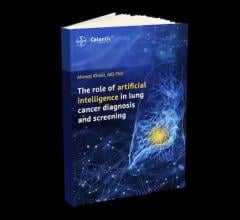
May 31, 2019 — Lunit announced an abstract presentation of its artificial intelligence (AI) precision medicine research portfolio at the American Society of Clinical Oncology (ASCO) Annual Meeting 2019, held May 31 – June 4 in Chicago. The accepted abstract highlights the feasibility of AI-based biomarkers in metastatic non-small cell lung cancer, based on the H&E analysis that predicts response to immune checkpoint inhibitors (ICI).
The study evaluated the predictive value of AI versus PD-L1, the main biomarker for ICI, in terms of both its comparative predictive value as well as additive predictive value. According to the research, within PD-L1(+) patient group, the treatment response and progression-free survival (PFS) significantly differed depending on the AI score. The same results were obtained within the PD-L1(-) group.
After reclassifying PD-L1(-) patient group based on the AI score, 52 percent of patients with high AI score had, in fact, shown response to ICI. These patients had three times longer PFS compared to the patients who had a low AI score. Similar outcomes were found among the PD-L1(+) patient group. Classified with AI profiling, 63 percent of low AI score patients were non-responsive to ICI. These patients had six times shorter PFS compared to high AI score patients.
Additionally, in an AI analysis independent of PD-L1, the team was able to identify more patients that showed response to ICI. Among PD-L1(+) patient group, 49 percent of the patients were responsive to ICI, whereas 65 percent of patients within high AI score patient group showed response.
Read the full ASCO abstract here.
For more information: www.lunit.io


 September 12, 2024
September 12, 2024 







